From Park Bench to Bible Contest Champion: Shimshon Jacob's Remarkable Journey
After eight years of dedicated study, a unique memory technique, and a deep connection to the Bible, Shimshon Jacob won first place. His inspiring message: "Focus on the effort, not the outcome, because that's what truly matters."
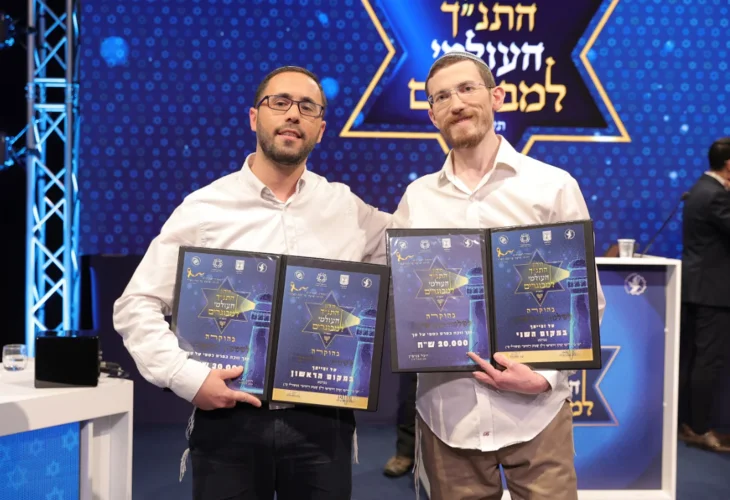 Photo by Asi Efrati
Photo by Asi Efrati"I myself don't know where the desire to participate in the Bible contest came from," says Shimshon Jacob, champion of the adult Bible contest for this year. He notes that until eight years ago, he had no special knowledge of the Bible, but then something clicked: "I started studying the Bible regularly, and after two years of study, I decided to take it as a mission and prepare for the contest. I signed up for the contest of 2021, thinking I might not get in, but it would certainly be interesting and challenging."
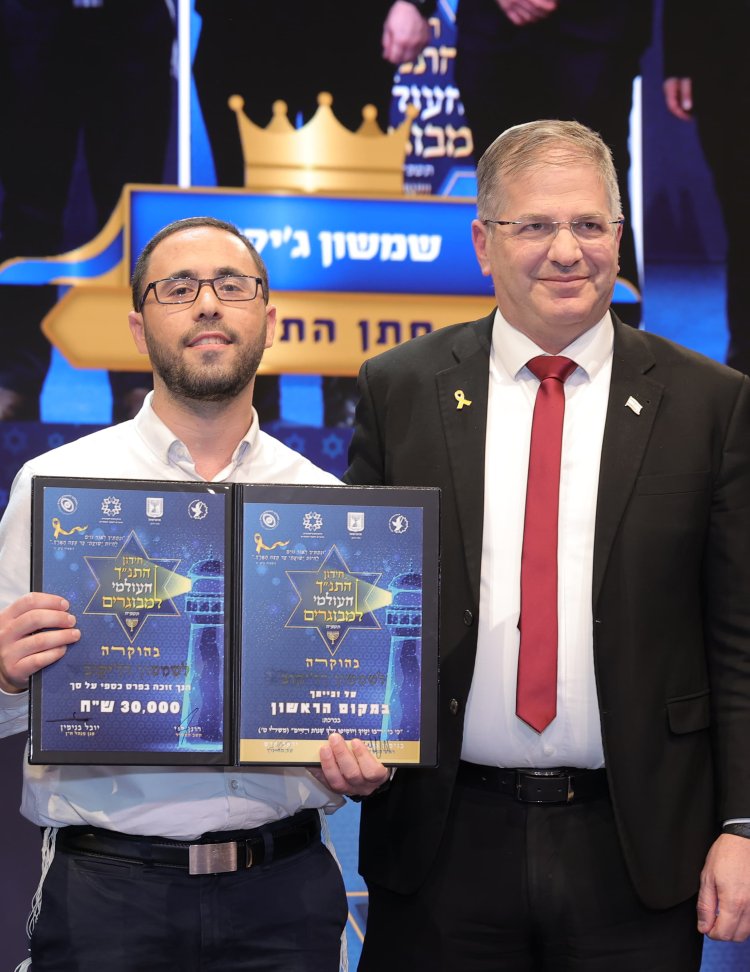 Photo by Asi Efrati
Photo by Asi Efrati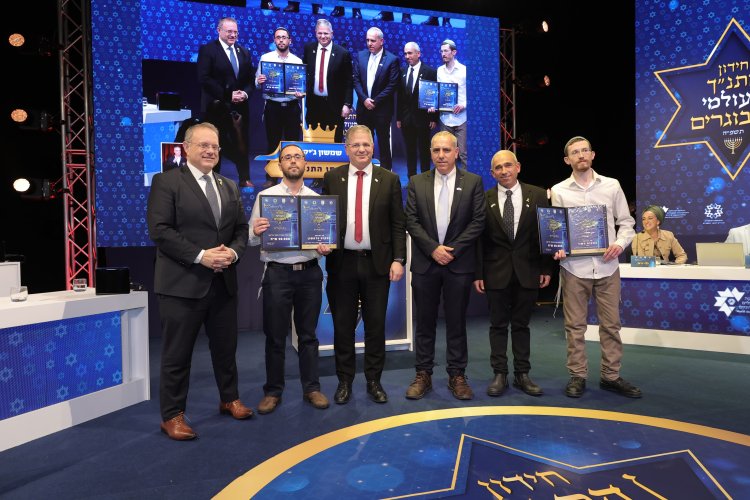 Photo by Asi Efrati
Photo by Asi Efrati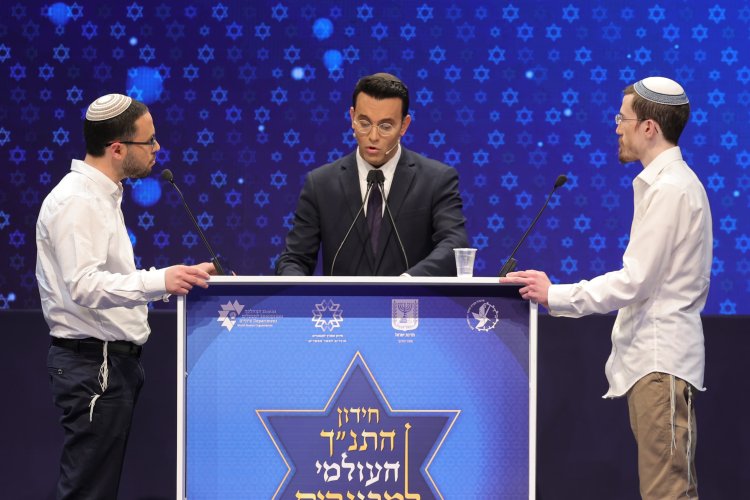 Photo by Asi Efrati
Photo by Asi EfratiThe Learning Path
It's not surprising that Jacob thought he might not qualify for the contest, as the path to it isn't easy. To qualify, one must register and pass preliminary written exams designed to filter out all but the top candidates. Those who pass are invited to regional contests, with the top 12 advancing to the national contest to compete for the coveted title.
"With Hashem's help, I passed the preliminary exams," Jacob explains, "but at the regional contest, I competed against about 150 participants, and when I left, I was sure I had made at least one mistake. Since only 12 move on to the national contest, I assumed there were 12 others who had made no mistakes. So I accepted that I likely wouldn't make it to the final, and I even started writing myself a 'recap of the period,' reflecting on how amazing and enjoyable the learning process had been. During those days, I had several missed calls from an unknown number, but it never crossed my mind it was from the contest team."
A week later, I discovered I was added to a new WhatsApp group called 'National Contest Participants.' "Only then did I realize I'd made it to the final," he notes with a smile, "and I was told they had tried to reach me several times to inform me."
In that contest, held in 2021, Jacob finished fifth, just one reserve point behind fourth place. (A reserve point is awarded for a bonus question when two contestants have the same score.)
"I wasn't disappointed," he says, "I felt really good about myself, and it was clear I would continue on to compete in the 2023 contest. To be honest," he adds, "before the 2023 contest, I didn’t want to finish in the top two spots because if you do, you don’t get to compete again but only proceed to the global contest. I enjoyed the commitment and would have been happy to compete again. I remember telling my mom: 'Pray that I come in third.'"
"In the end, I took the exam and it was really challenging. The questions were written by Liron Ben Moshe, a global contest champion who knows the entire Bible by heart, including the sources of every chapter and verse. The contest was split over two days – a written test on the first day and a public test the next. Just shortly before the public test, I was surprised when Liron hinted that I placed in one of the top spots. In the end, I won the contest alongside Shlomo Mondshine, a writer and Bible scholar, and we both qualified for the global contest, which was postponed due to war and happened this year."
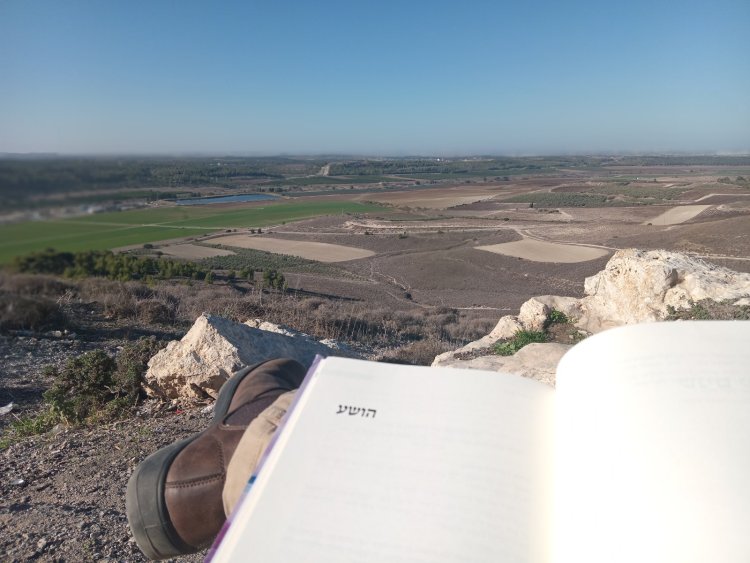 Last two images caption: Studying on the park bench
Last two images caption: Studying on the park bench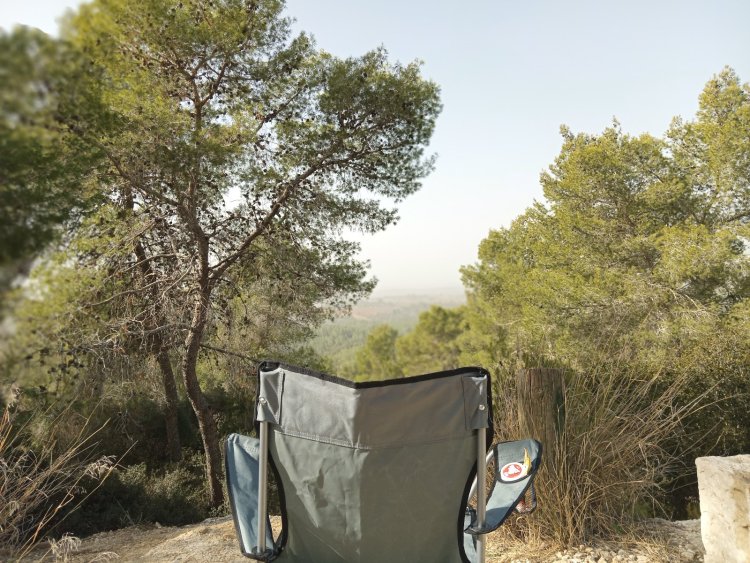 Last two images caption: Studying on the park bench
Last two images caption: Studying on the park benchMemory Technique
The global contest took place last week at the Jerusalem Theater, attended by the Minister of Education, the Director General of the Ministry of Education, and the Chairman of the World Zionist Organization, with ten competitors from six different countries.
"Winning was a complete surprise," admits Jacob, "and it still feels strange. I'm also a bit worried about what lies ahead. After eight years of regular study, it will surely leave a big gap."
Tell us about your preparation for the contest. How much time did you devote each day, and how did you memorize the material?
"As I mentioned, I started studying about eight years ago, with a routine of one to two hours a day. I was very diligent about not missing a single day, yet cautious not to overdo it to the point of feeling burnt out. Even when I had the technical ability to continue for another half hour or hour, I would stop myself."
"I made sure the learning was enjoyable, in a pleasant place – at first in the synagogue and later under a specific park bench. I think of all the people in the world, there is no one else who can say they sat every day for years on the same bench. Last year, they replaced all the park benches, and the bench 'mine' wasn't replaced. So I bought a folding chair, set it up among the bushes, and continued studying in the same spot."
How did you manage to remember so much material?
"I had an interesting memory technique that helped me a lot. It started after the 2021 contest, when I didn’t know if I’d advance or not, so I approached the first stage, which examines only part of the material, saying to myself that if I pass, I’ll see what to do next. Eventually, I passed, leaving me a month and a half to review past material and learn the Twelve Prophets – which is a book with 12 separate prophetic books that have similar prophecies, making it difficult to remember which prophet said what."
"At that time, I recalled attending a lecture on memory, where it was explained that to remember things, it's helpful to imagine them happening in a specific location. So I assigned each book a different location and recorded myself with all the cues and where I envisioned everything. Within less than two weeks, I could remember where every prophecy was written and who said it. Seeing how beneficial this was, I applied it to the material I had already learned, feeling it was even more ingrained within me."
"Afterwards, I assigned each word a tangible image that helped me remember it. For instance, whenever 'securely' was written, I imagined a person with a helmet, even if unrelated. When I read 'great,' I envisioned a flag waving, and for 'world,' I saw the planet Earth. I invented numerous words and also recorded them, essentially creating a tangible language for abstract words. Initially, I was enthusiastic when I shared this method, thinking it would help others, but eventually realized that everyone has their method and what worked for me might not help someone else. However, personally, this method continues to aid me, especially on Shabbat when I want to remember something and can't write it down; I simply visualize it tangibly, which helps immensely."
Learning with Joy
Besides being the global Bible champion, Shimshon Jacob resides in Beit Shemesh and works as a teacher – a class educator. "But first and foremost," he emphasizes, "I'm a father to three children. I have the joy of raising them and also being a father to my students and teaching them Torah."
How did your children and students react to your victory?
"My students didn't know beforehand that I was competing, but when they heard about the victory later, they were very happy and excited. My eldest son, who is eight and a half, was involved in my studies and was very interested, eagerly anticipating the contest. Incidentally, he also recently completed studying the Bible, having started at age five. This happened because he noticed my Bible had markings where I highlighted names, places, etc., in different colors. He was intrigued and asked me every time to explain a different color. So I started sharing with him regularly before bed. He didn't learn verse-by-verse but definitely went through the whole Bible, driven by his curiosity, not because I told him he needed to study. There were even times when he asked to learn more, but I refused, as it was crucial for me to convey that this was a reward, not a burden. People ask if I aspire for my son to compete in the youth Bible contest, and though he’s already beginning to prepare, I constantly emphasize that it’s entirely not expected of him, and we do not demand it. It’s genuinely true. By the way, this is also my goal for my students – to instill a love for Torah from a place of joy and happiness, letting these feelings accompany them in life."
Jacob also stresses the message: "Effort is far more important to me than winning, and it’s from this perspective that I view all the other participants in the contest. After the contest, someone shook my hand and said, 'Yasher koach.' I couldn't help but ask him: 'If I had finished fifth, would you still say yasher koach?' I'm trying to convey the message that appreciation shouldn't come only from achievement but from effort. Not to mention that there could easily have been scenarios where Shlomo Mondshine, my runner-up, could have been awarded first place, and I second or even lower."
"Personally, seeing my name in the media last week made me uncomfortable because I’m really just an ordinary person. I succeeded in one area, but like everyone else, I face challenges and have my trials. I wonder when the day will come when someone who didn't make it to the contest's finals is interviewed, or a 'regular' person raising ten children or a working Jew who studiously attends the daily page and joins a lesson every day. When will they place the spotlight on people without a flashy title like a Bible champion, but who are no less a source of inspiration to many?"

